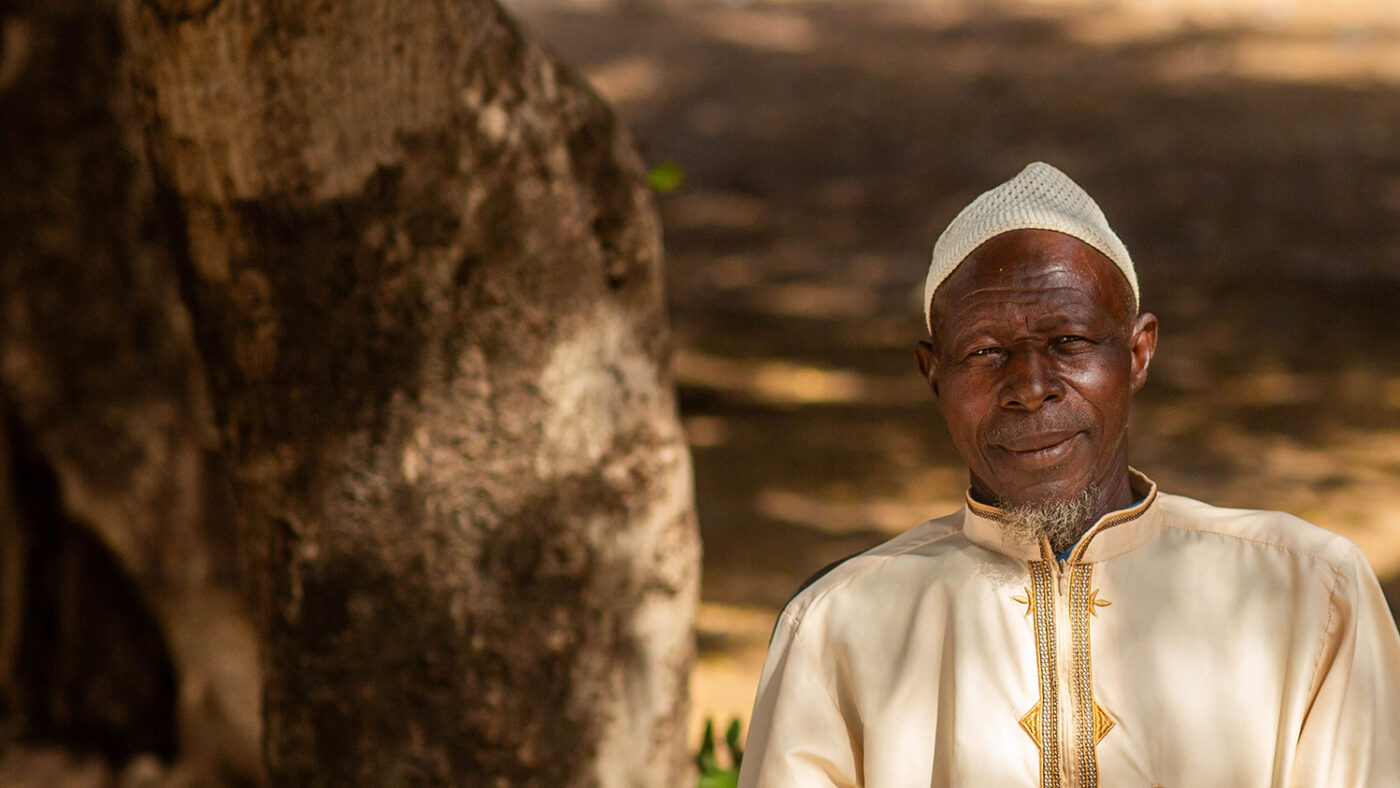
In Burkina Faso, one health programme is helping to transform the lives of thousands of people who are suffering from a disfiguring disease.
The disease is lymphatic filariasis (LF), a parasitic infection that can cause severe swelling of a person’s body parts. People with the condition often develop a permanent disability, which can leave them unable to work or care for their families. They can also be exposed to stigma and discrimination as a result of this.
Sightsavers is working with Burkina Faso’s government on an innovative programme – ARISE II – which is bringing new hope for these patients.
Among other areas, the programme supports doctors to treat men with hydrocele, a symptom of LF where the scrotum is painful and severely swollen. A simple operation can remove the swelling and help these men return to their normal lives. Surgeons in Burkina Faso performed more than one thousand of these operations in 2023.
One patient, Sabane Compaoré, explained: “I was taken care of, I had no complications, and now I feel very well. Today, I feel fine and go about my business without any problems. I’m no longer ashamed to walk around the city.”
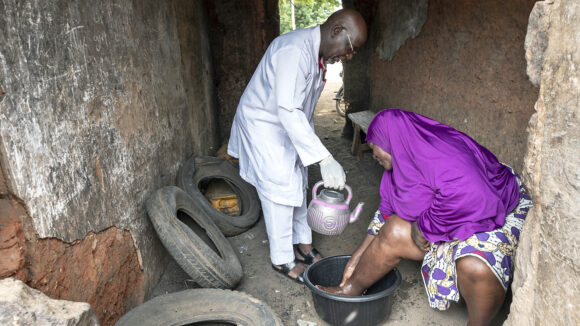
What is lymphatic filariasis?
Lymphatic filariasis is a serious disease, with millions of people globally at risk. It can cause a range of symptoms, but is often characterised by abnormal enlargement of body parts.
Learn about the disease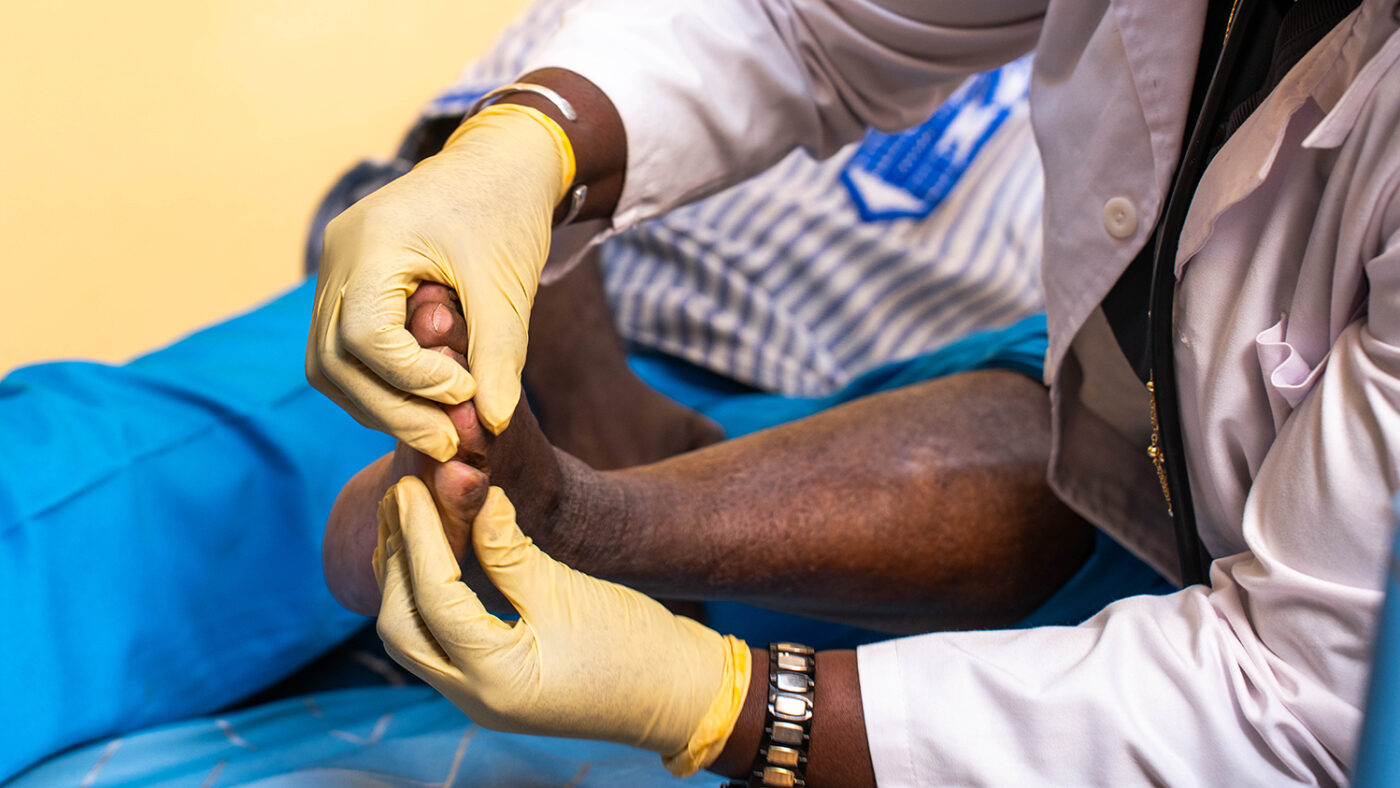
Overcoming superstition and stigma
The programme is also helping to treat people with lymphedema, another complication of LF that involves swelling of the arms or legs.
There is no cure for this debilitating condition. However, patients can reduce their pain and swelling by washing the affected limb regularly, and by keeping it elevated for parts of the day.
The ARISE II programme is working to spread this message far and wide, using an army of ‘patient peer educators’. These are people living with LF themselves, who provide advice to other members of the community on how to take care of their swollen limbs.
The peer educators also play a role in tackling the superstitions surrounding LF – such as the belief that it is caused by evil spirits. These beliefs can contribute to the stigma that many patients face and can discourage them from seeking medical help.
Patient peer educator, Batawouni Tounissongo, said: “I’m going to try to guide all of those who suffer from this ailment to go and get treatment in hospital and, above all, to show them how to look after their feet.”
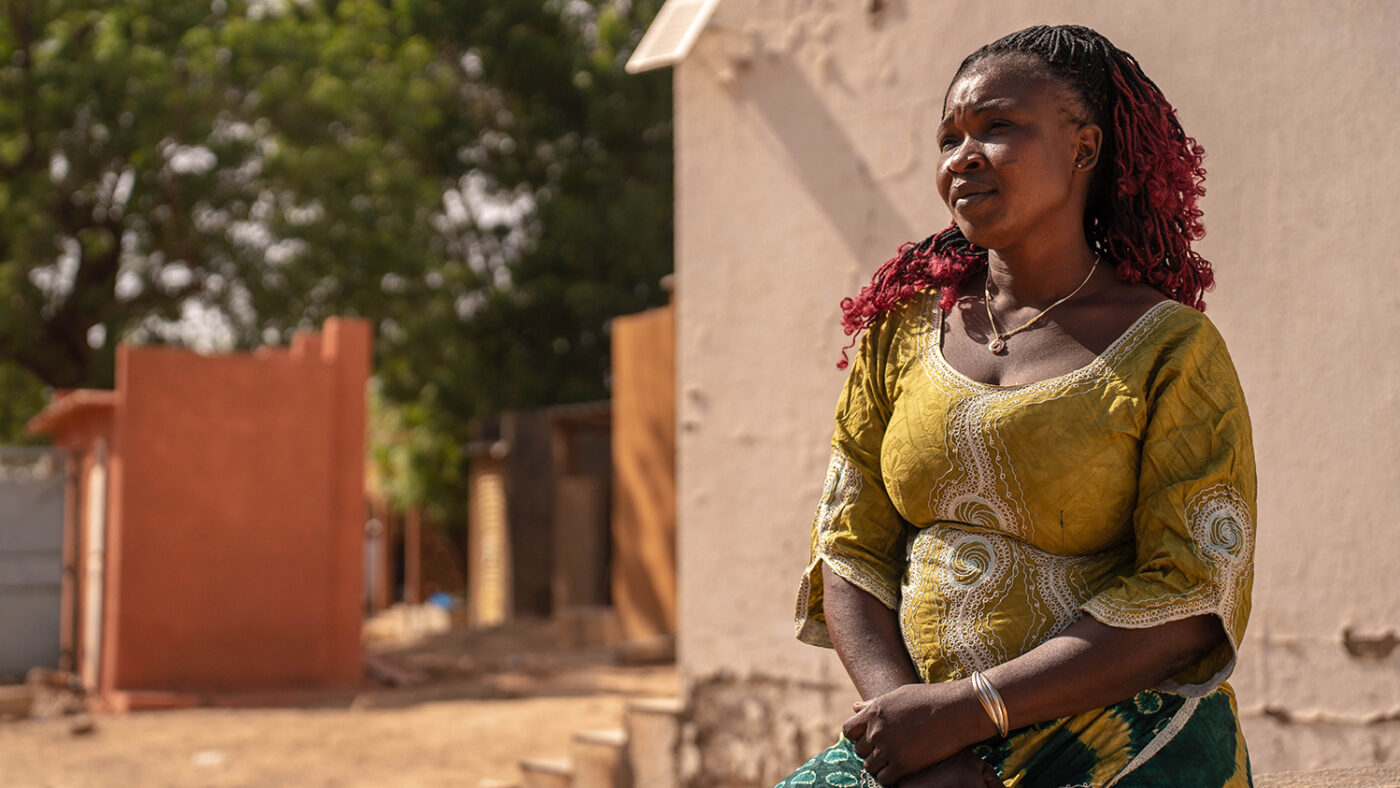
Protecting the population
As well as treating patients with LF, Sightsavers and the government of Burkina Faso are working to prevent people from catching this disease in the first place.
This relies on an effective strategy known as mass drug administration, which involves training large numbers of volunteers to hand out doses of medication within their local communities.
In 2024, the ARISE II programme supported volunteers to distribute preventative treatments for LF to more than 500,000 people in the country.
Emile Rayaisse, Sightsavers’ programme manager for neglected tropical diseases (NTDs) in Burkina Faso, explains the programme is also focusing on “the digitisation of NTD data”.
The aim is to ensure that drug treatment data is recorded in the country’s health information system, so that the government can analyse the success of treatment campaigns and make decisions about how to improve them in the future.
The team at Sightsavers has also introduced a hydrocele tracker app, which can help to manage the performance of surgeons who carry out hydrocele operations and ensure patients receive the right aftercare.
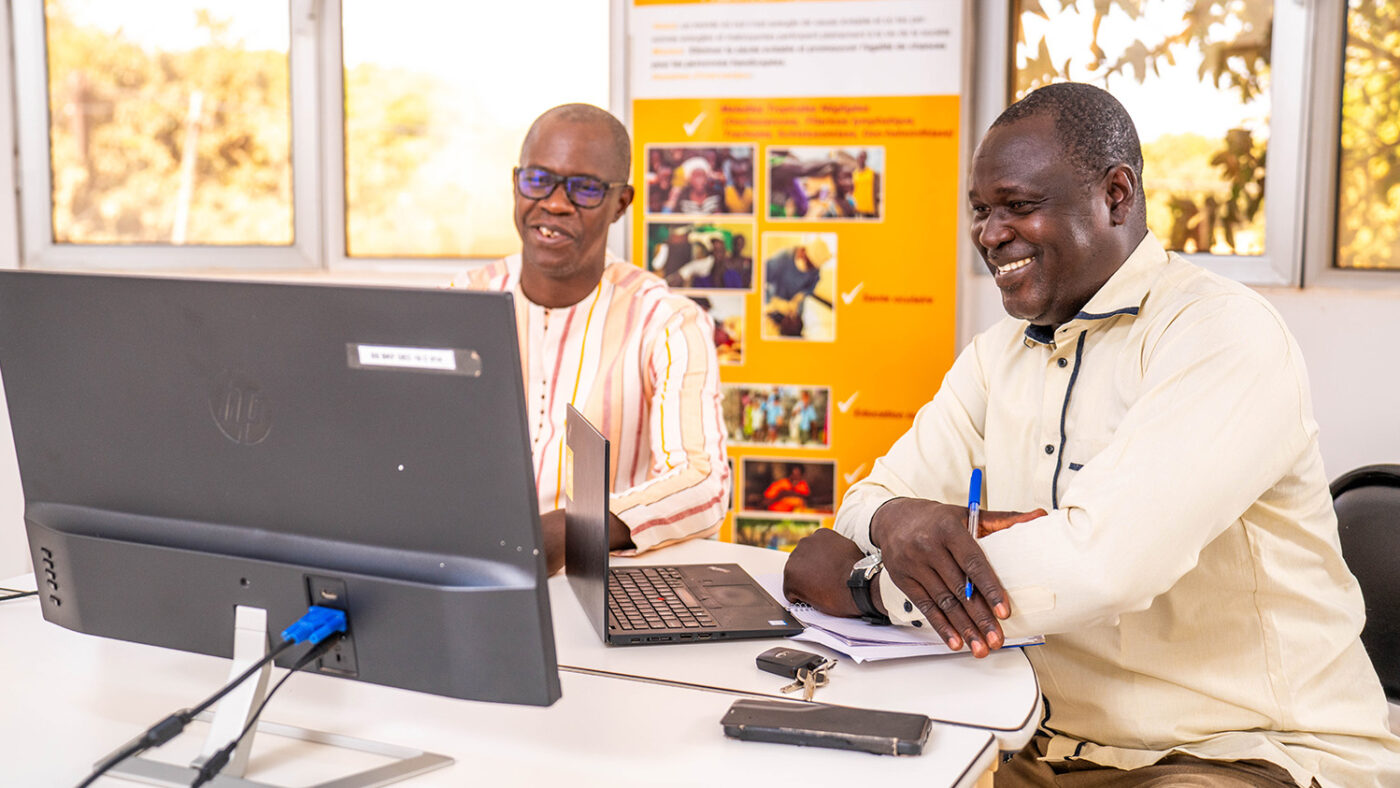
Eliminating lymphatic filariasis around the world
Millions of people across Burkina Faso may soon be free from the threat of lymphatic filariasis, thanks to the efforts of the country’s government and the support of programmes like ARISE II.
The government and its partners have already interrupted the transmission of LF in 65 districts. This means people in these areas can go about their lives without the risk of being infected with the disease. Our aim is to repeat this success in other regions until we have eliminated LF as a public health problem across the country.
Other nations across Africa, Asia and the Americas are working towards the same goal, and the World Health Organization (WHO) is hoping 58 countries will have beaten LF by 2030.
In order to achieve this, we need the governments of endemic countries to commit further funding and resources towards eliminating LF in years to come. We also need a greater number of international donors and partners, from across different sectors, to join us in the fight against LF.
The ARISE II programme is a testament to the impact that international partnerships can have, as it has been supported and funded by a range of organisations including The END Fund, the Children’s Investment Fund Foundation, the Gates Foundation and ELMA Philanthropies.
The programme shows that if we work together, we can eliminate this disease that is causing untold pain and suffering for millions of people around the world.
To learn how you can support this type of work, find out how you can help.
“We need governments to commit further funding and resources towards eliminating lymphatic filariasis”
Learn about our work to eliminate NTDs
Sightsavers and NTDsHow you can help us fight NTDs

Donor institutions
Vital funding from governments and other institutions will ensure we can continue our fight to eliminate debilitating neglected tropical diseases.

Corporate partners
A corporate partnership with Sightsavers can add value to your business and fund our life-changing work. Your generous support can have a huge impact.

Give a gift
Every gift you give helps change lives for people in some of the world’s poorest countries. With your help, we can continue to treat and prevent diseases.

